Khanh was born into a family that had a traditional lute-making profession in Hang Non. His father is Pham Chi Duong, a famous lute-maker in Hanoi. Khanh said that Vietnamese traditional musical instruments were very much a part of his childhood. Khanh learned how to make drums when he was 8 years old. Understanding the value of ethnic instruments, Khanh learned early on the many processes of making different instruments.
While working at Vietnam’s Tuong (classical opera) Theatre, Khanh has found opportunities to perform around the country. For Khanh, each performance trip is a chance to discover and collect instruments of different ethnic groups in Vietnam.
From a few traditional musical instruments inherited from his father, Khanh is now able to make hundreds of musical instruments from different ethnic groups, from ethnic minorities in the northwest to unique ethnic groups in the central highlands.
He has not only learned how to build an instrument, he also tells historical stories related to the origin and name of that instrument.
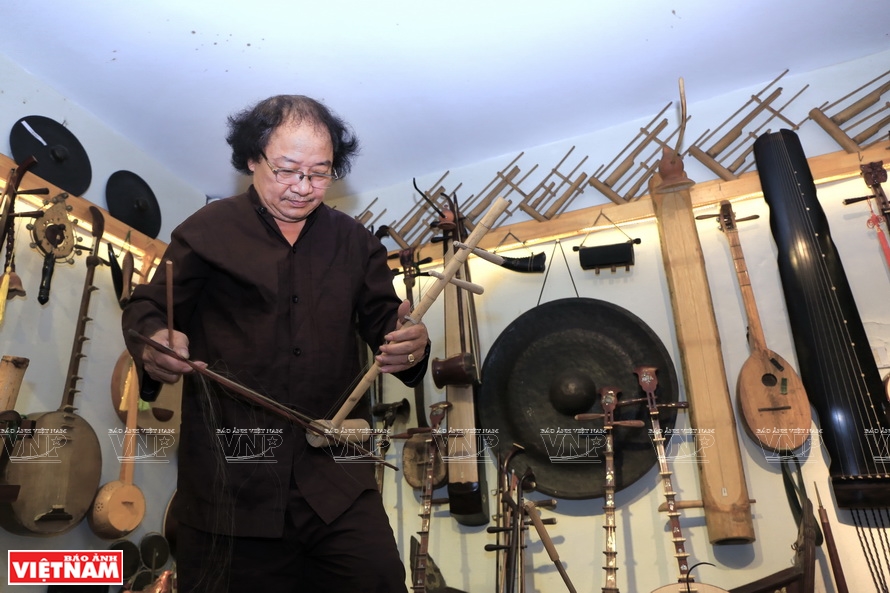
Pham Chi Khanh is playing a lute inside his "miniature museum".
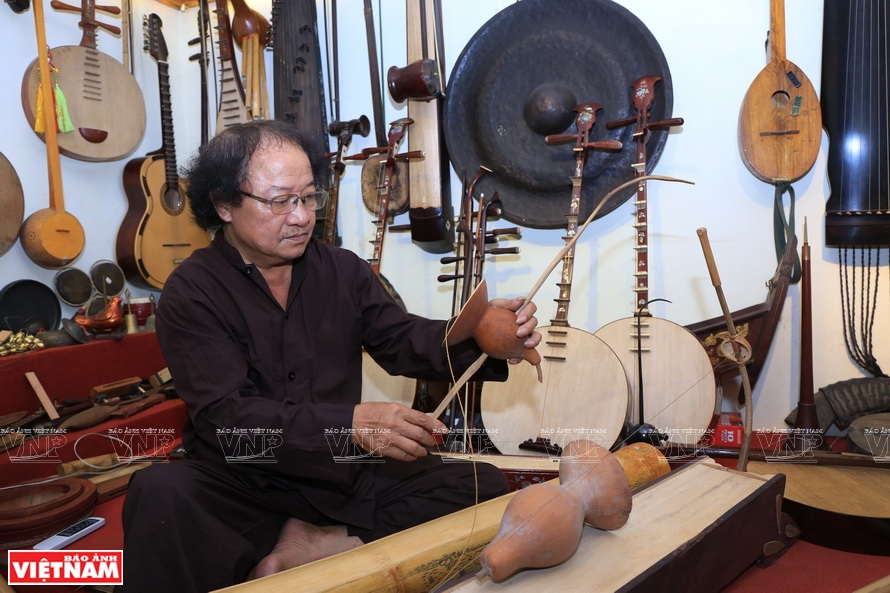
Pham Chi Khanh is building a monochord.
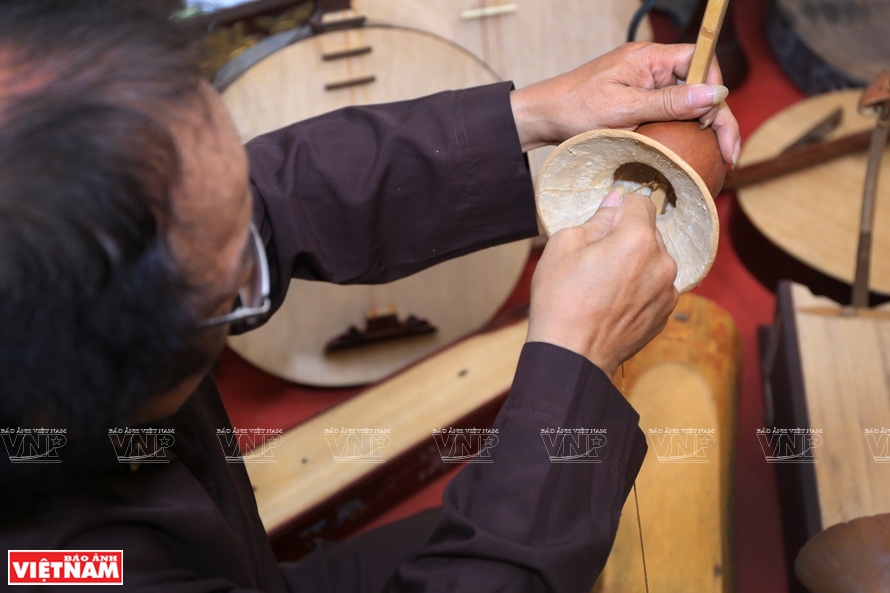
A monochord is made from dried gourd.
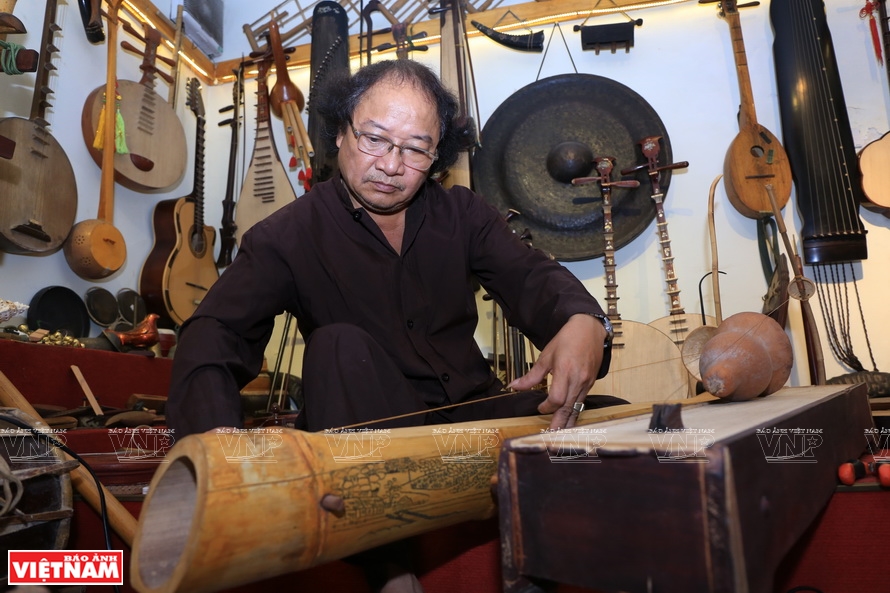
A monochord is built by the hands of artisan Pham Chi Khanh.
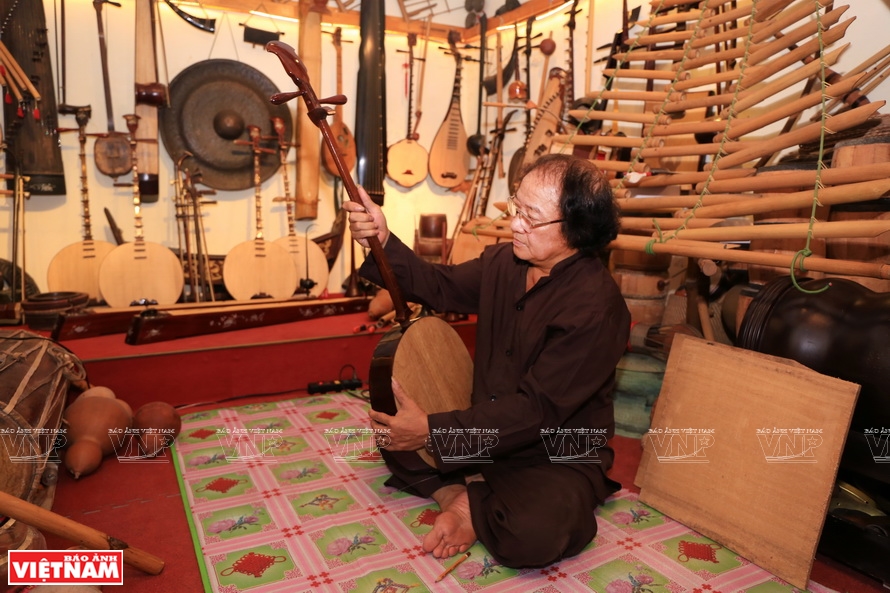
Artisan Pham Chi Khanh and his dan nguyet (moon-shaped two-stringed lute).
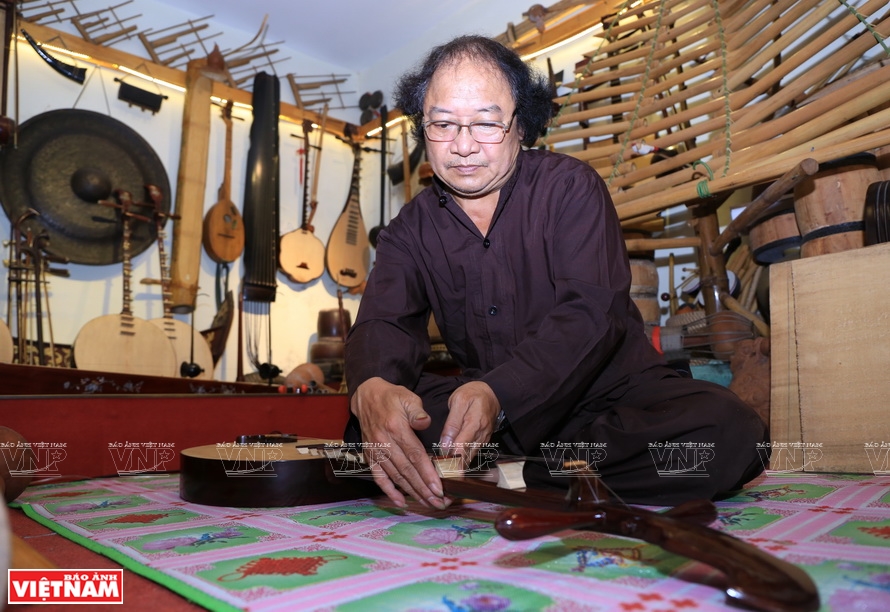
Pham Chi Khanh completes the last stage of making a dan nguyet.
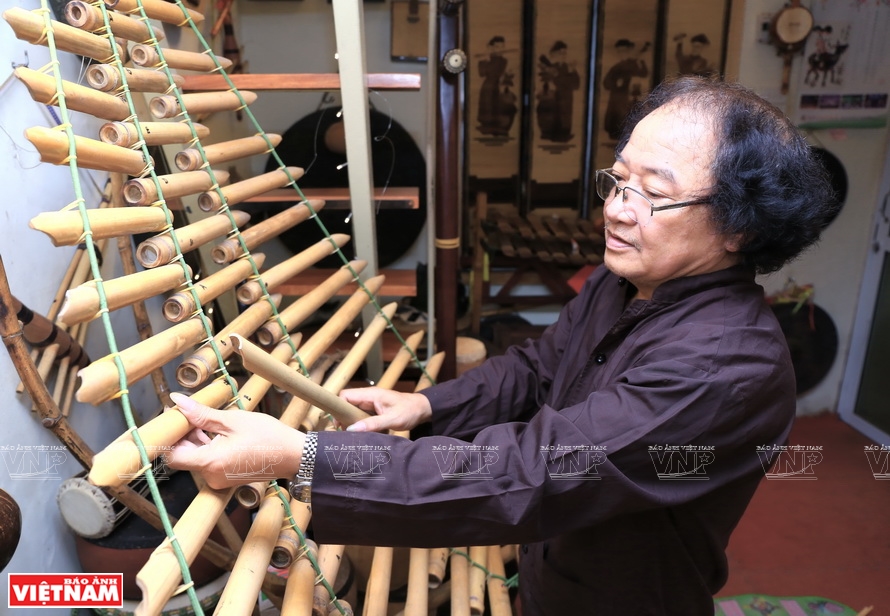
A T'rung made by Pham Chi Khanh.
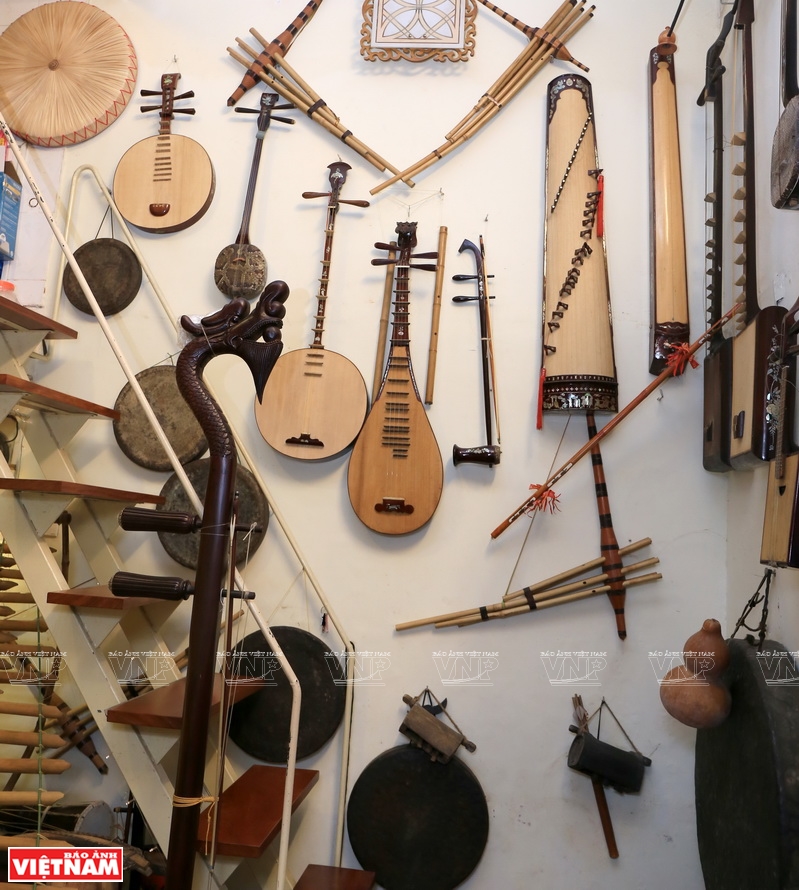
A "miniature museum" of Vietnamese traditional musical instruments inside Pham Chi Khanh's house. |
The
dan bau (monochord zither) in his house is a testament to that knowledge. Currently, Khanh has 3 versions of that particular zither. The zither is very old and was restored by him using photographs. The second version of it was improved based on the old version and is used in xam singing which is known as folk music usually performed by blind street singers to earn a living. The third version has been improved even more and appeared after electronic music came to Vietnam.
Khanh not only knows how to make musical instruments, but can also play traditional Vietnamese melodies on his own instruments.
Khanh said that music in general and traditional music in particular are the voices of Hanoi's people who love peace and beauty. It is a seductive "soft power" that makes Hanoi a place of magnificence.
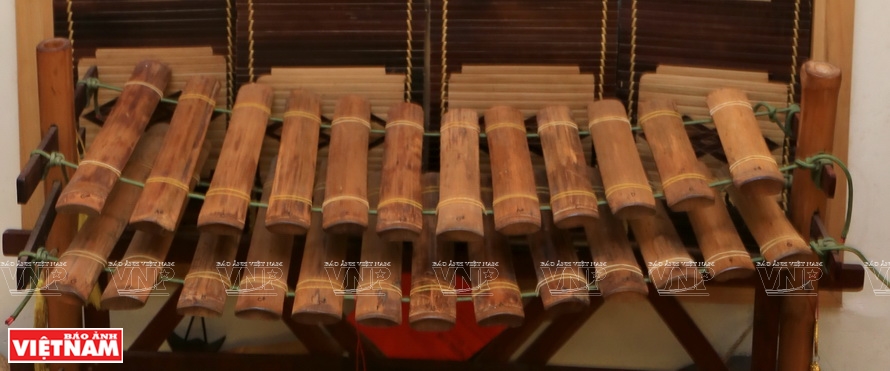
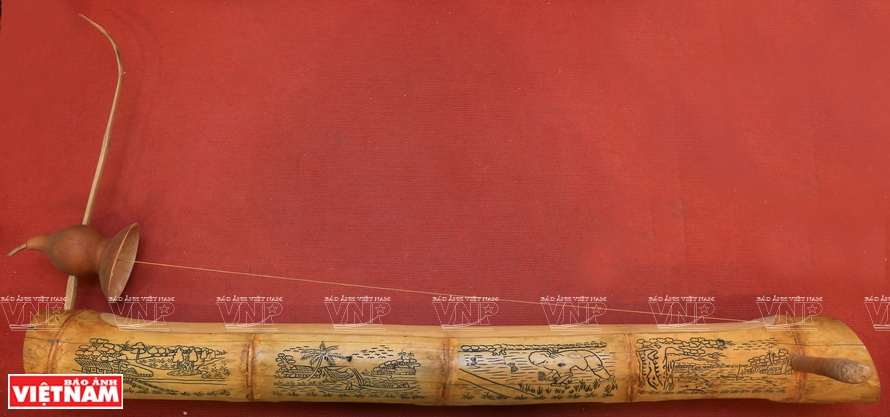
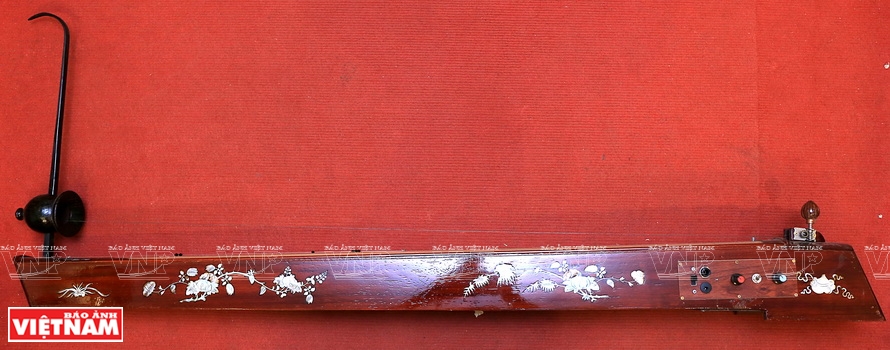
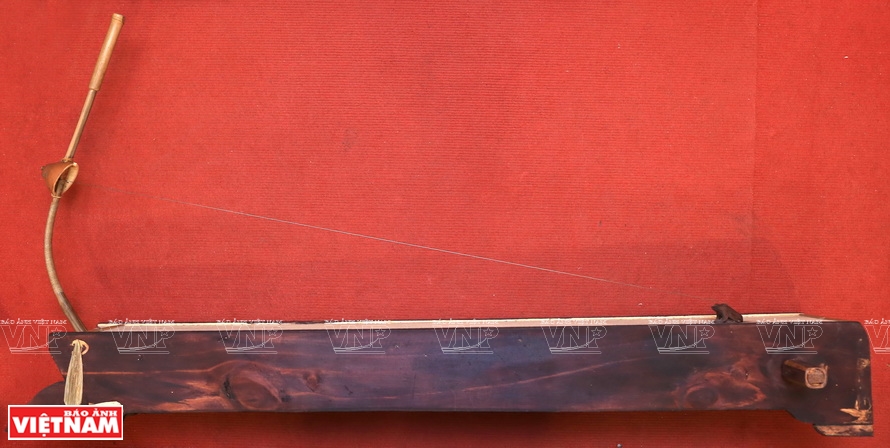

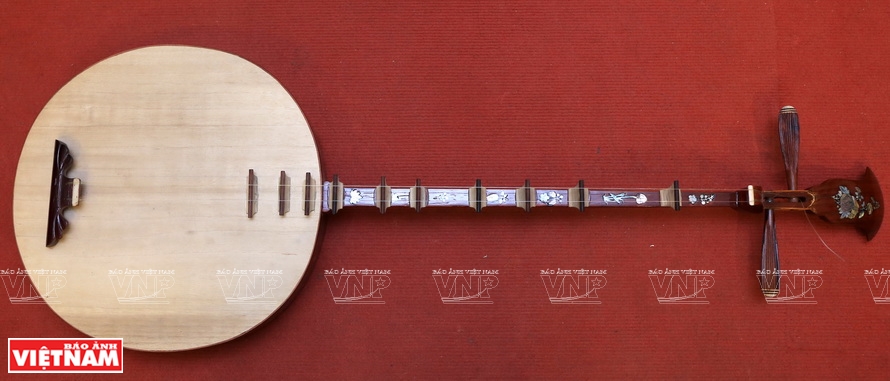
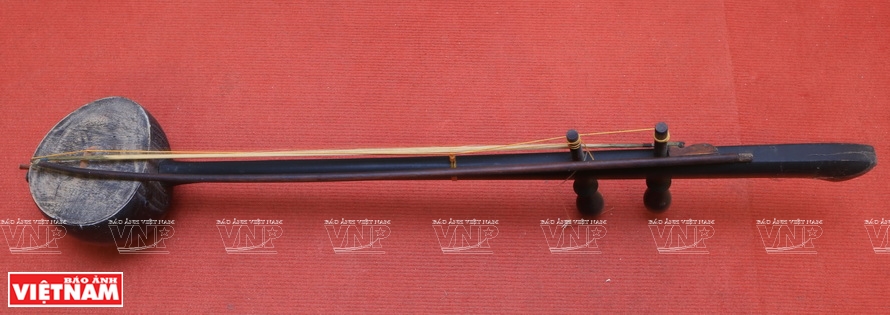
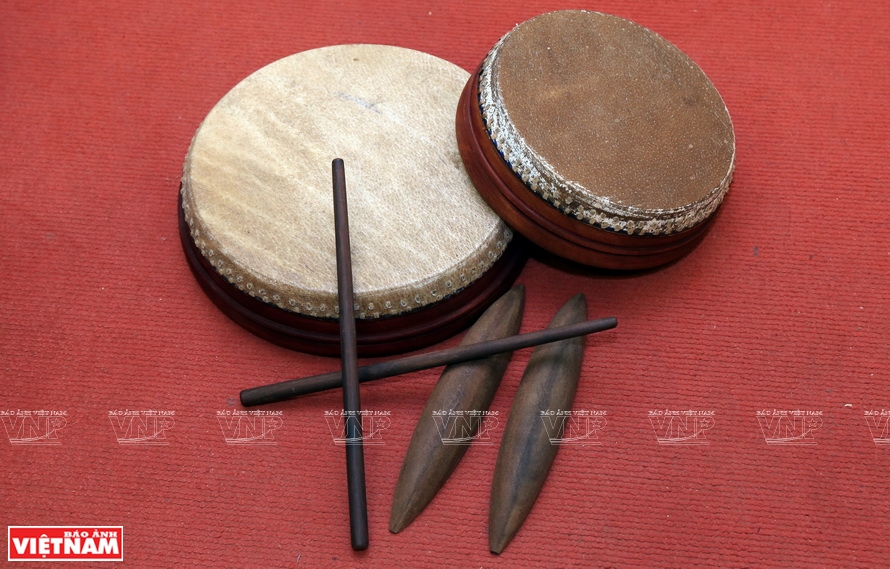
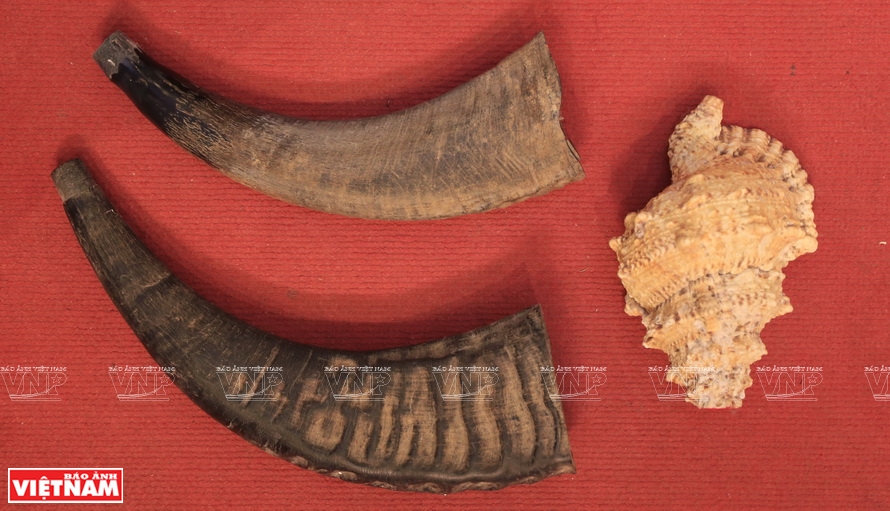
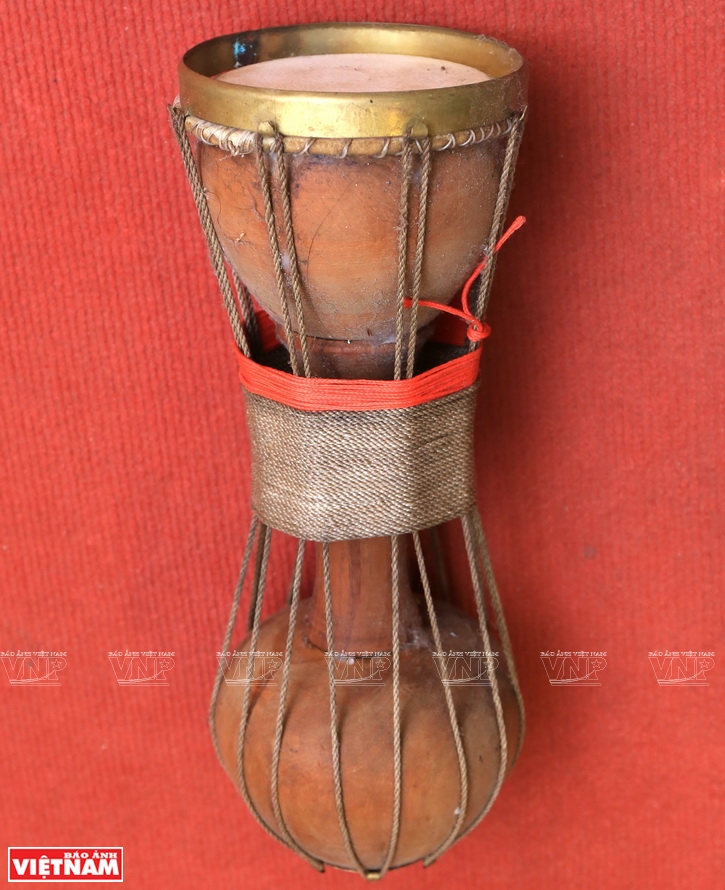
The musical instruments include a dan nguyet,
Ginang drum, modern dan tu (rectangular box lute with a long neck), dan sen (two-stringed lute), dan thap luc (16-chord zither),
Buffalo horn, castanets used in folk singing, and the klong put (woodwind musical instrument) created by Pham Chi Khanh. |
Story: Thao Vy - Photos: Thanh Giang